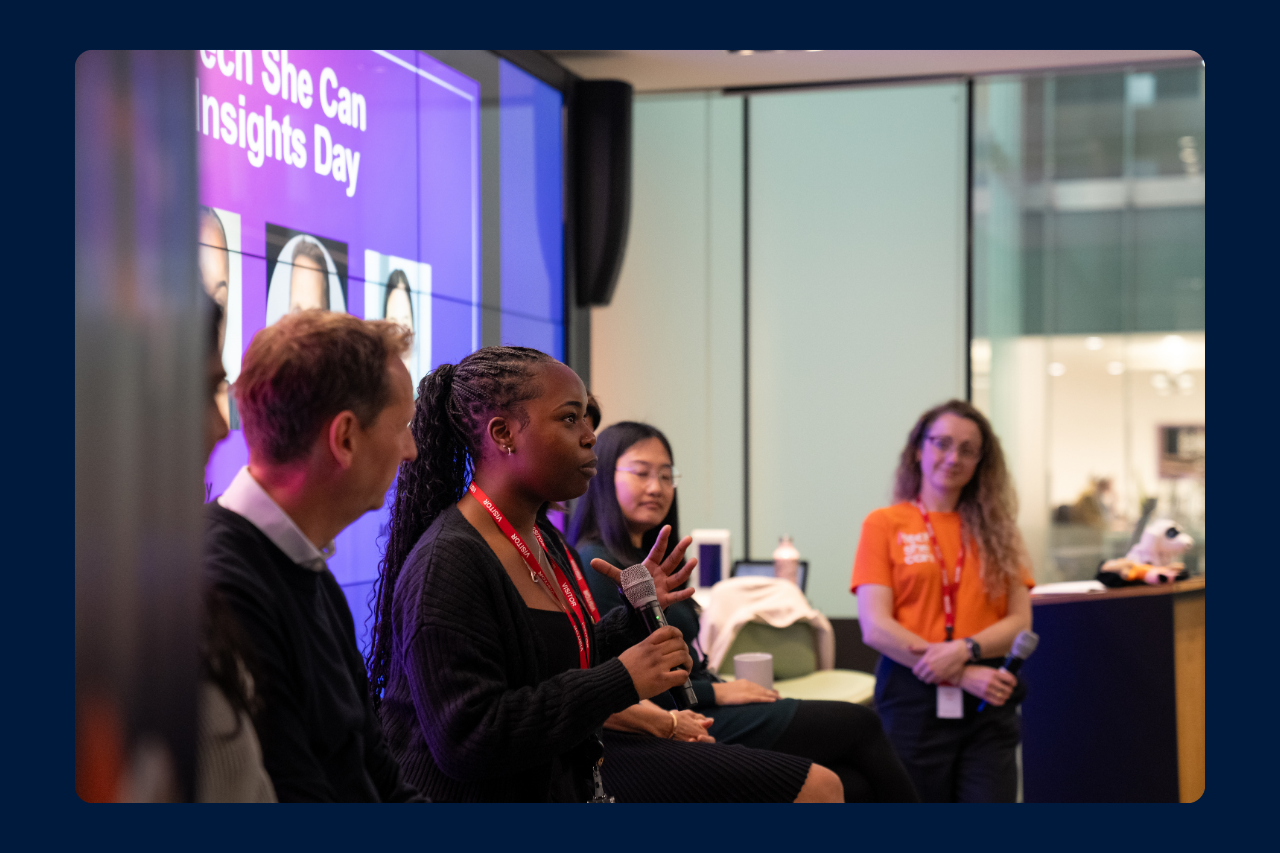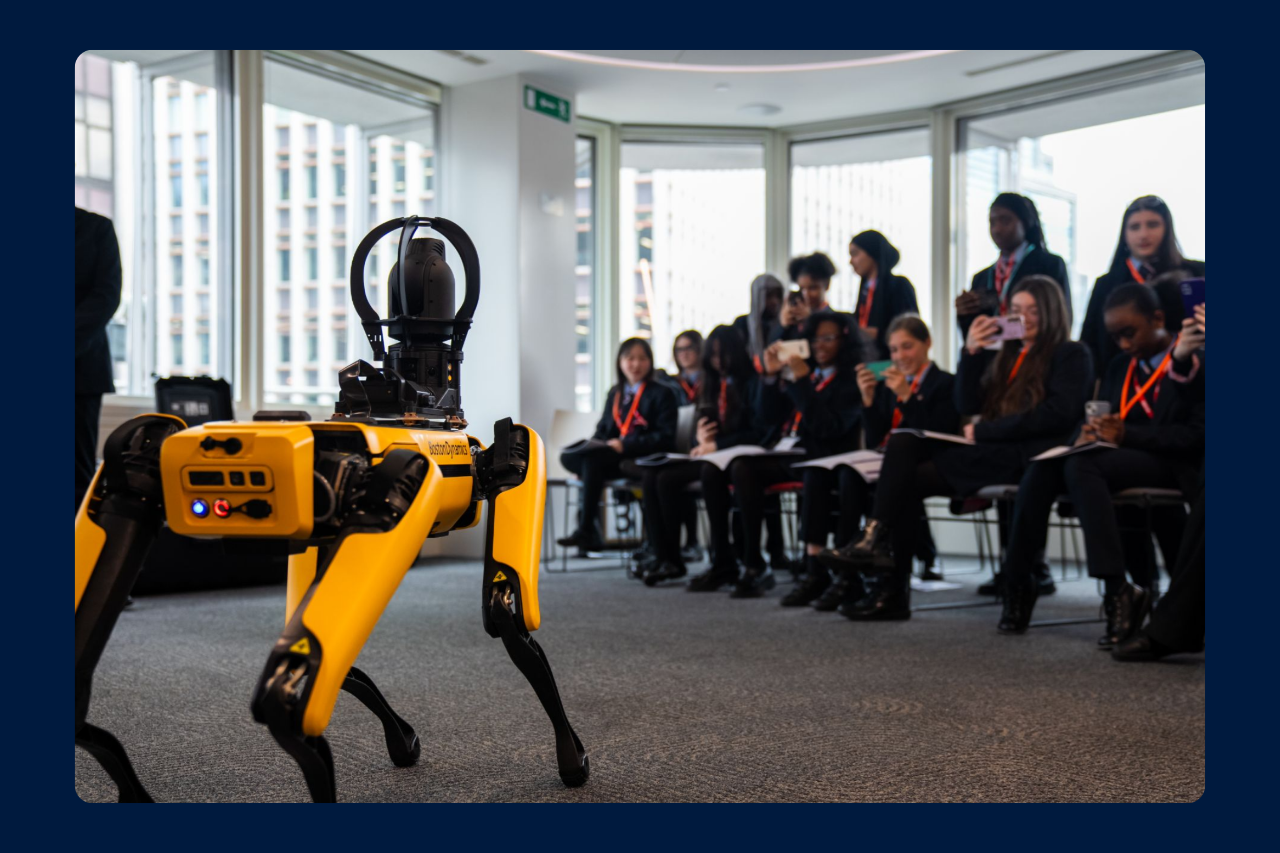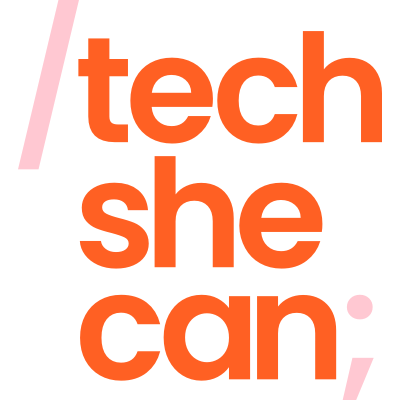Manifesto for Generational Change
Our 10-year vision to close the critical technology skills gap, 'inspiration gap' and 'aspiration gap', realising UK-wide opportunity for all - published 2024
On a mission for equal future
Technology businesses, products and services will continue to shape our world. But women are not equal in their creation or development - only 1 in 4 workers in technology are women, dropping to 1 in 10 at leadership level. Access to technology talent is now critical and its shortage costs the UK economy £60bn every year. We urgently need to inspire all children to consider technology careers, whatever their passion or postcode.
But many children are simply not aware of opportunities in technology or how to get there, and girls are being put off. Our research shows that gender and disadvantage have a negative multiplying effect and harmful gender stereotypes of STEM careers start young - before primary age.
The UK needs a long-term vision and bold leadership on pre-16 years skills and careers education. Too often education and skills and talent are silo-ed, and the educator’s voice is missing from the debate on skills and talent.
The STEM curriculum is not agile, doesn’t keep pace with technological developments, and doesn’t reflect the UK’s science and technology priorities or sectors. We’re training children for skills they won’t need, for jobs they won’t do with 65% of children today set to do jobs that currently do not exist.
Quick fixes are not the answer. Initiatives focused only on one part of the pipeline - such as those entering the workforce - are not enough. We need structural changes focused at the very start of the pipeline: young children. We need commitment and leadership to tackle cultural and structural barriers and reimagine STEM careers education.
A pedagogical shift is needed. In order to inspire and prepare the next generation to tackle global challenges and to enable social mobility UK-wide, a systems thinking approach is required, from early years through to early talent and beyond. Ultimately, to ensure the world works for all.
At Tech She Can - the careers inspiration charity - we bridge education and industry, representing many voices. Together with over 250 industry partners spanning over 40 sectors, we’re on a mission to ensure all UK girls aspire to pursue, and can access pathways into, technology careers.
We have the solutions: proven products designed and delivered by teachers, for schools ; relatable industry role models; established reach in classrooms across the UK.
In our first 3 years, our cross-curricular learning resources and experiences have directly reached over 120,000 UK children. And over half a million children from the UK and overseas have independently enjoyed our resources online. We’re racing to keep up with demand. With your help, we can reach many more. Our ambition: reach every UK child, regularly throughout their schooling, at moments that matter.
1. Now: Address structural barriers and societal perceptions to benefit all, especially girls, to change the ratio of women in technology
- Create a diverse, effective supply chain Quality-assess and recognise technology careers education providers of all sizes and types, representing many sectors, on rigorous inclusion, diversity and impact metrics
- Systems thinking approach Establish a joint DFE-DSIT unit on pre-16yrs skills and careers education supported by expertise from industry and the charitable and education sectors
- Create equitable pathways Incentivise schools to encourage leavers to pursue a range of career pathways - including apprenticeships
- Launch a national technology careers public campaign Reclaim the tech narrative demonstrating its applications for societal good and inherent creativity - with a focus on girls and women
- Challenge perceptions and make technology role models visible in all classrooms Make it easy for every class to routinely access diverse, relatable technology role models
- Adopt AI throughout education Raise the level of national AI literacy. Teachers must be given the skills and support to teach it and teach with it

2. By 2029: Prepare young people for work and life at every age with inclusive, future-ready careers education for all
- Invest in early and sustained careers inspiration for parents, children and teachers Equip teachers to encourage children to be tech-curious and imagine themselves creating our future from early years onwards, before harmful stereotypes set in
- Embed ‘little and often’ approach to technology careers education UK-wide Offer timely, regular and sustained employer engagements to all, at the moments that matter
- Champion ‘hooks’ into STEM Make use of the UK’s vibrant AI and space sectors, bringing to life big, inspiring concepts to excite children in early years and primary
- Reimagine employer engagement and tech teacher Continuous Professional Development (CPD) together with industry Inspire children and invest in teacher tech CPD by opening existing tech festivals and communities to them

3. By 2034: Modernise the STEM curriculum to inspire and equip children for emerging careers
- Create a modern, future-ready STEM curriculum with inspiration at its core that’s relevant to all, especially girls Establish a joint industry-DFE-DSIT taskforce to create and update a ‘living’, agile technology curriculum
- Elevate and embed technology across all subjects Ensure technology is embedded across all subjects, with objectives clearly linking to emerging technology in each curriculum topic, elevating it alongside core subjects such as English and Maths
- Equitable access to STEM-qualified expertise and opportunities is essential All schools must have regular access to STEM-qualified teachers; Computer Science GCSE / National 5 Computing Science should be offered in all schools
- Education moonshot: a pedagogical shift To remain competitive in a rapidly and continually changing technology landscape, re-think structures to focus on global challenges and application areas, moving beyond disciplines

Please show your support for change on your social channels using the buttons on the right and include our community's education and industry voices in the solutions.
